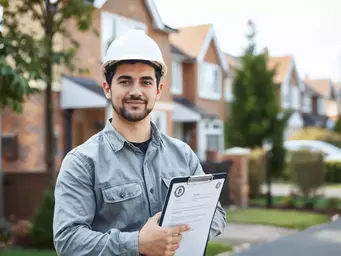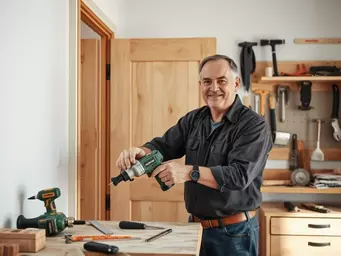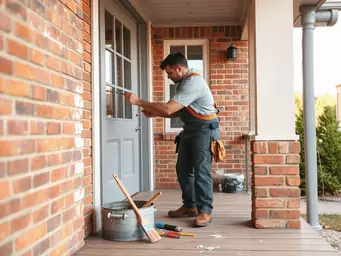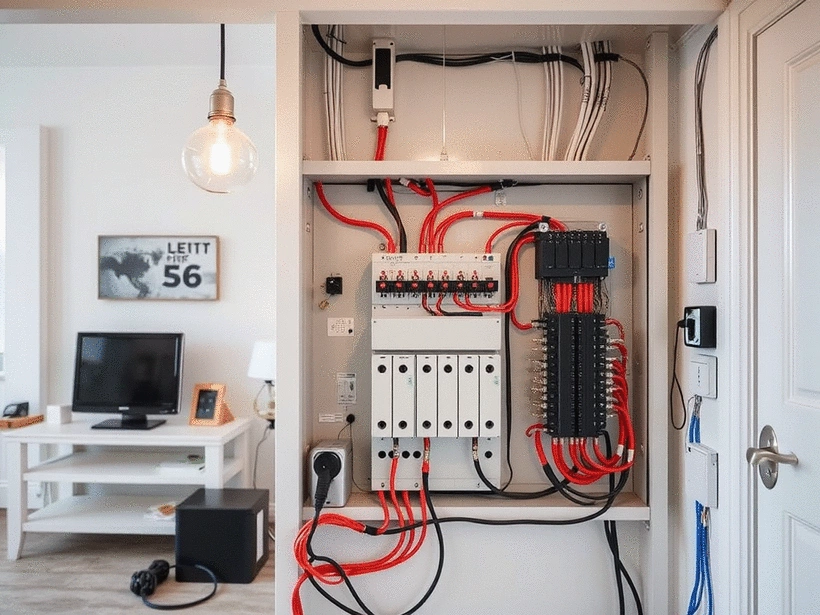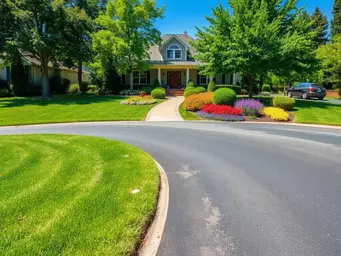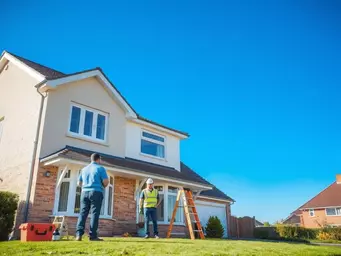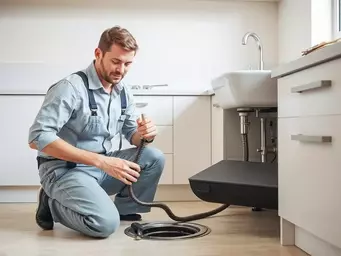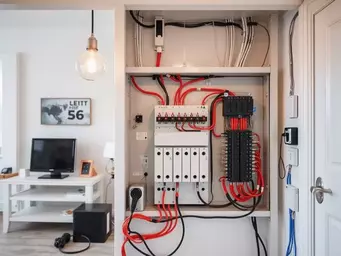Hiring a Handyman: A Practical Guide

Hiring a handyman for your commercial property maintenance can feel overwhelming, yet it doesn't have to be. With the right guidance, you can streamline the process and ensure your property remains in top condition. Here’s a succinct overview of what you’ll gain from this article.
What You Will Learn
- Professional maintenance enhances safety compliance, reducing liability risks for your business.
- Proactive property upkeep can significantly lower long-term repair costs, ensuring cost efficiency.
- Understanding common maintenance needs—like HVAC and plumbing—helps prevent business disruptions.
- Engaging a property management team can streamline maintenance oversight and improve resource allocation.
- Regular maintenance audits are essential for continuous improvement and aligning services with property goals.
- Establishing a maintenance checklist and scheduling inspections fosters a proactive approach to property care.
- Researching local handyman services and obtaining multiple quotes ensures a reliable choice for your property needs.
Streamlining Commercial Property Maintenance: A Process Flow
This diagram illustrates the key steps and continuous improvement cycle involved in effective commercial property maintenance, from defining needs to ongoing audits.
1. Define Needs & Research Services
- ✓ Clear maintenance requirements
- ✓ Local handyman research
- ✓ Check credentials & past work
*Initial Setup*
2. Quote & Selection
- ✓ Request 3+ detailed quotes
- ✓ Compare services & pricing
- ✓ Conduct thorough interviews
*Hiring Phase*
3. Planning & Compliance
- ✓ Research local regulations
- ✓ Obtain necessary permits
- ✓ Develop maintenance checklist
*Pre-Work Stage*
4. Proactive Maintenance & Audits
- ✓ Regular inspections & audits
- ✓ Review maintenance logs
- ✓ Solicit tenant feedback
*Ongoing Cycle*
Understanding the Importance of Hiring a Handyman for Commercial Property Maintenance
When managing a commercial property, the importance of professional maintenance cannot be overstated. It’s not just about keeping the lights on or the plumbing flowing; it's about ensuring a safe, functional, and welcoming environment for both employees and clients. A well-maintained property enhances the reputation of your business and can even boost productivity. Trust me, as someone who has spent over a decade in property maintenance, I've seen firsthand how crucial it is to have reliable support on your side!
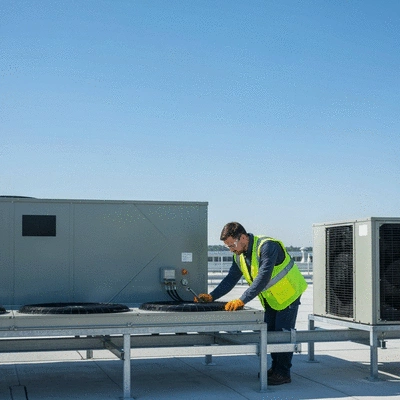
Why Professional Maintenance Matters for Commercial Properties
Professional maintenance ensures that all systems are functioning optimally, which can prevent major disruptions in your business operations. When you hire a handyman with experience, you’re investing in peace of mind. Here are some key reasons why professional maintenance should be a priority:
- Safety Compliance: Regular maintenance helps meet safety standards, reducing liability risks. You can find more information on safety compliance guidelines for businesses.
- Cost Efficiency: Proactive upkeep can prevent costly repairs down the line.
- Enhanced Longevity: Keeping your property in top condition extends the life of your systems and structures.
- Positive Impressions: A well-maintained property creates a welcoming atmosphere for clients and employees alike.
In my experience with BigFunction Property Maintenance, I've found that investing in proper maintenance not only keeps spaces functional but also maintains the value of the property itself.
Common Maintenance Needs for Commercial Spaces
Every commercial property has its unique maintenance needs, but some tasks are universally essential. Here are some common areas that require regular attention:
- HVAC Systems: Regular checks and filter replacement keep air quality high.
- Plumbing: Addressing leaks or clogs promptly prevents bigger issues.
- Electrical Systems: Ensuring all wiring is safe and operational.
- Exterior Maintenance: Keeping up with landscaping, roofing, and façade upkeep enhances curb appeal.
Understanding these needs is vital for any business owner. Regular attention in these areas can keep your property running smoothly and avoid unexpected disruptions.
The Role of Property Management in Maintenance Oversight
Property management plays a crucial role in overseeing maintenance tasks. They act as the middleman between you, the property owner, and the handyman services you hire. Engaging a professional property manager can significantly streamline the maintenance process.
- Coordination: They ensure that the right service providers are engaged at the right times, reflecting practices similar to those outlined in federal hiring information for efficient resource allocation.
- Budget Management: Effective managers help allocate funds for maintenance without overspending.
- Regular Inspections: They perform routine assessments to catch potential issues early.
By employing a property management team, you can ensure that your property remains in top condition while you focus on your business. It’s all about creating that seamless connection for optimal maintenance!
Pro Tip
To ensure your handyman services meet your expectations, always request a detailed scope of work along with the estimate. This not only clarifies what tasks will be completed but also helps you avoid unexpected costs later on. Transparent communication is key to a successful partnership!
Frequently Asked Questions About Commercial Property Maintenance
Summarizing Your Path to Hiring a Reliable Handyman
Hiring a handyman for your commercial property maintenance may seem daunting, but with the right approach, it can be a smooth process! At BigFunction Property Maintenance, we believe that understanding the steps involved can empower you to make informed decisions. Here are some key takeaways to keep in mind as you navigate the hiring process.
- Define your maintenance needs clearly before reaching out.
- Research local handyman services to find qualified candidates.
- Don’t overlook the importance of checking credentials and past work.
- Conduct thorough interviews to assess professionalism and fit.
By focusing on these essential aspects, you’ll be well on your way to finding a reliable handyman who meets the specific demands of your commercial property.

Encouraging Proactive Maintenance for Commercial Properties
Regular maintenance is vital for keeping your commercial space running smoothly. Proactive maintenance not only minimizes the risk of costly repairs but also ensures a safe and inviting environment for your tenants or employees. I often remind clients that an ounce of prevention is worth a pound of cure!
- Schedule routine inspections to identify potential issues.
- Establish a maintenance checklist to track tasks.
- Consider seasonal maintenance to prepare for weather changes.
By encouraging a culture of proactive maintenance, you can significantly enhance the longevity and functionality of your property. This not only leads to happier tenants but also protects your investment.
The Value of Maintenance Audits and Continuous Improvement
As a property maintenance expert, I can’t stress enough the importance of conducting regular maintenance audits. These evaluations help identify areas for improvement and efficiency in your maintenance processes. They also provide insights into how well your handyman is meeting your needs.
- Review maintenance logs to understand recurring issues.
- Solicit feedback from tenants on the condition of the property.
- Adjust maintenance strategies based on audit findings.
Continuous improvement in your maintenance practices not only helps in keeping your property in top shape but also builds a stronger relationship with your handyman, ensuring that you are both aligned with your property goals.
Next Steps: Taking Action for Your Commercial Property Maintenance
Now that you have a roadmap for hiring a reliable handyman, it's time to take action! I know it can feel overwhelming, but breaking it down into manageable steps will make a world of difference. Let’s get started!
Accessing Additional Resources and Checklists
At BigFunction Property Maintenance, we’ve compiled a variety of resources to assist you in your maintenance journey. From checklists for essential tasks to guides on what to look for in a handyman, we’ve got you covered. Check out our website for downloadable resources that can simplify your decision-making process!
- Maintenance task checklists.
- Handyman interview question guides.
- Resource links for local services.
Having these tools at your disposal can empower you to take the next step confidently.
Inviting Quotes and Contacting Local Handyman Services
Once you've done your research, it’s time to reach out to local handyman services for quotes. Be clear about your needs and don't hesitate to ask for detailed estimates. I recommend setting up a meeting to discuss your requirements in person; it can really help in establishing a good rapport!
- Request quotes from at least three different handymen.
- Compare quotes based on services offered and pricing.
- Consider scheduling a consultation to discuss your property’s specific needs.
Gathering multiple quotes not only gives you a sense of the market but also helps you gauge the handyman’s communication style and professionalism.
Understanding Local Regulations and Work Permits
Before any work begins, it’s crucial to understand local regulations and whether any work permits are needed. Ignoring this can lead to fines or delays in your maintenance projects. I always encourage my clients to check with local authorities to ensure compliance. Additionally, for financial considerations when hiring independent contractors, you might find guidance on IRS FAQs regarding 1099-MISC helpful.
- Research necessary permits for specific maintenance tasks.
- Consult with your handyman about any regulatory requirements.
- Stay updated with changes in local building codes.
By being proactive about regulations, you can avoid potential pitfalls and ensure a smoother maintenance process for your commercial property.
Recap of Key Points
Here is a quick recap of the important points discussed in the article:
- Safety Compliance: Regular maintenance helps meet safety standards and reduces liability risks.
- Cost Efficiency: Proactive upkeep can prevent costly repairs in the future.
- Common Maintenance Needs: Key areas include HVAC systems, plumbing, electrical systems, and exterior maintenance.
- Property Management Role: They ensure proper coordination, budget management, and regular inspections.
- Proactive Maintenance: Schedule routine inspections and establish a maintenance checklist to track tasks.
- Maintenance Audits: Conduct regular audits to identify areas for improvement and adjust strategies accordingly.
- Hiring Process: Define your needs, research local services, and check credentials before making a decision.
